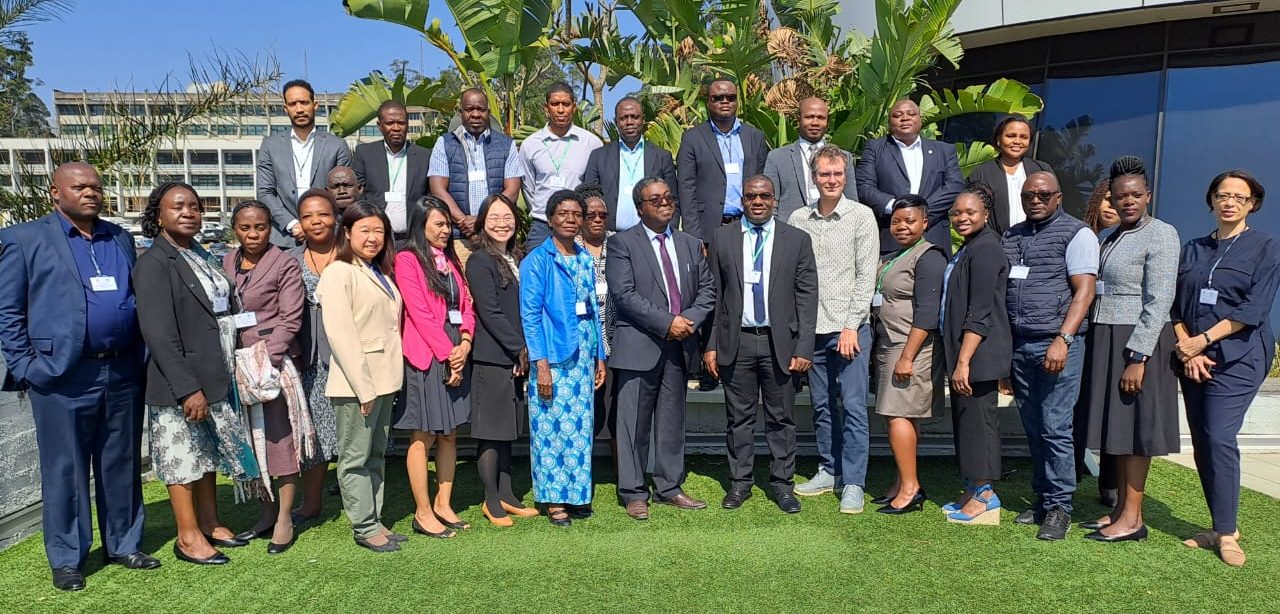By Delisa Thwala
The Ministry of Agriculture on behalf of the Kingdom of Eswatini is using vegetables and their diversity, to build a healthier and wealthier Eswatini, that is ever more resilient to the climatic and economic shocks that are surely to come.
This was revealed by Ministry of Agriculture Principal Secretary (PS) Sydney Simelane during the SADC-PGR Annual Technical Review and Planning Meeting held at Mbabane Hilton Inn Garden.
Simelane said among the key outcomes of the TAVI project has been the development of the African Vegetable Biodiversity Rescue Plan (AVBRP) which is aligned to relevant global, continental, and national frameworks that seek to improve rescue, conservation, and sustainable utilization of vegetable biodiversity.
“For three years, African vegetable diversity was rescued, conserved, and used, contributing to the safeguarding of agrobiodiversity for food and nutrition security in Africa.
And it created stronger, more resilient foundations for food systems by strengthening the accessibility and affordability of vegetables,” said the PS
Simelane, the plan is an outcome of a process that started with a landmark study from 2021, ‘Diversity and conservation of traditional African vegetables:
Priorities for action’ which highlighted the issues, potential, and ways forward, that were further developed and refined in the African Vegetable Biodiversity Rescue Plan.
“This plan is also a continental component towards the building of a global rescue plan to reduce and reverse the decline in vegetable diversity worldwide,
as was proposed at the United Nations Food Systems Summit in 2021, where the paper ‘Safeguarding and using fruit and vegetable biodiversity’ warned that declining biodiversity limits future options for a sustainable, healthy food supply,” said the PS.
ALSO READ: Infracast pumps over E140,000 worth of access control facilities for Philani Maswati Home
Worth mentioning is that the plan resulted from the input of many experts through stakeholder consultations, from sub-regional plant genetic resources (PGR) networks of the Southern Africa
Development Community (SADC), West and Central Africa (WCA), and the Plant Genetic Resources Management Working Group (PGRM-WG) of the African Union’s African Seed and Biotechnology Program (ASBP).

The plan was first validated at a workshop in December 2023 in Eswatini which was followed by validation at the AUC level this year leading to a final endorsed version that will be launched in Kigali during the AFS event.
Meanwhile, food and nutritional insecurity highly affect populations in developing countries, particularly in SSA where about 57% of people cannot afford a healthy diet.
Meanwhile, it has been shown that mainstreaming traditional African vegetables into food systems can support the achievement of sustainable development goal No. 2 “end hunger, achieve food security and improved nutrition and promote sustainable agriculture”.
Vegetables and especially traditional vegetables (jute mallow, amaranth,) are highly nutritious and healthier food sources compared with global vegetables (lettuce, cabbage,).
The Ministry further revealed that TAVs are valuable assets to healthy diets and to support nutrition-sensitive agriculture in the changing climate.
Several challenges affect the development of the traditional vegetable sector: the seed systems of African vegetables are still very weak with the informal seed system dominating the sector and providing up to 100% of seeds used by farmers, for most TAV crops.
There is also low technical capacity in SSA for vegetable research including seed technology, breeding, agronomy, and post-harvest.
ALSO READ: NAMBoard calls for traders to update accounts or face permit termination
Therefore, actions are required to support quality seed supply and encourage sustainable use of vegetable biodiversity through strengthened R and D partnerships and collaborations among plant genetic resources handling stakeholders in Africa.
Simelane further expressed his gratitude to the Government of the Republic of China (Taiwan) who generously funded the TAVI Project to benefit Eswatini and other partner countries.
He said the Kingdom of Eswatini has always cherished the good bilateral relationship that exists between our two countries, and the TAVI Project that brought them together.
“This project is one of the many that are currently being supported by the Government of the Republic of China (Taiwan).
As a Government, we are greatly excited about this project which has allowed us to explore the conservation, production, and utilization of indigenous vegetables.
We appreciate the financial and technical support that goes into such initiatives” he said.
In addition, he said as a Ministry, they wish to assure the Republic of China (Taiwan), WorldVeg, and partners that they will continue to support the initiative even beyond the implementation phase of the project.


